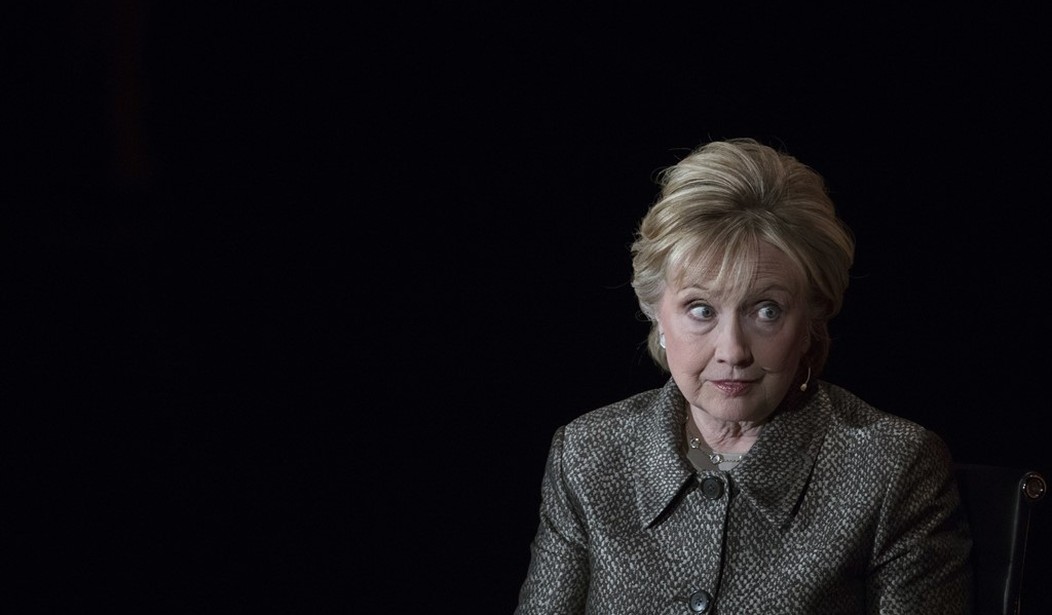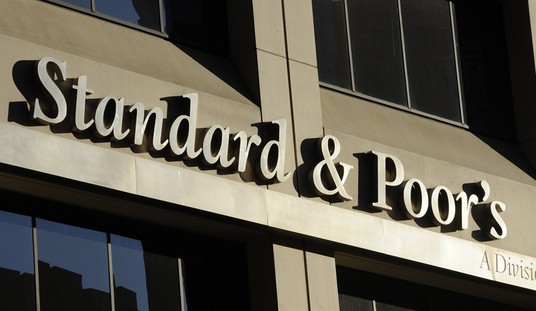Good lord. It’s one thing to blow an election once, but to lose hypothetically to a guy with a 42 percent approval rating again? Is there no limit to the humiliation the Clintons will suffer at Trump’s hands?
We’ll have our answer when Ivanka and Chelsea inevitably square off in 2024.

The same ABC/WaPo poll found that when 2016 voters were asked who they actually did vote for last November, 46 percent said Clinton versus 43 percent who said Trump — the same number he gets in this hypothetical rematch. In other words, given the option of a do-over, virtually no Trump voters would switch their votes. Clinton voters, on the other hand…
While just 4 percent of Trump’s supporters say they would back someone else if there was a redo of the election, fully 15 percent of Clinton supporters say they would ditch her.
That 15 percent is split up between those who say they would vote for Trump (2 percent), Gary Johnson (4 percent), Jill Stein (2 percent), and either other candidates or not voting (7 percent).
WaPo suspects the disparity there is due mostly to people instinctively shunning a loser, which I think is right. If you voted for the winner, you’re heavily invested in his success as president and willing to give him the benefit of the doubt in his first hundred days. If you voted for the loser, you may be embarrassed by the endless inside stories of how poorly her campaign was run, how weak her campaign message was, and so on. You’re no longer invested in her success so you can critique her honestly; some voters are openly angry at Clinton for performing so badly. Add to that the “Bernie would have won” sentiment among the left over the past six months and you’ve got a substantial “buyer’s remorse” faction among Democrats, notwithstanding their loathing of all things Trump.
Relatedly, an amazing result from elsewhere in the poll:

Republicans are seen as being in touch by more voters than Democrats are even though the populist Trump’s numbers on that score aren’t good. He stands at 38/58; by comparison, Obama stood at 51/46 in April 2013 while the Democratic Party scored an even 48/48 as recently as 2014. What’s driving the new GOP edge over Democrats? For starters, Republican voters are more convinced than Democrats are that their own party is in touch, a natural (maybe inevitable) reaction to last fall’s results. When asked if the GOP is in touch, Republican voters split 60/30 while Democrats split 14/81. When asked if the Democratic Party is in touch, Republicans split 16/81 — nearly identical to the Dem numbers for the GOP — but Democrats themselves split just 52/44. There again, I think, you have the Bernie wing giving thumbs down to Clintonian neoliberalism plus a chunk of Democrats who, more basically, remember the results in former Dem strongholds like Pennsylvania, Michigan, and Wisconsin and recognize that something has gone badly wrong. Independents recognize it too: While just 26 percent say the GOP is in touch, a mind-boggling 18 percent say the same of Democrats. The next time you hear buzz about a big wave building in 2018 for a party led by Chuck Schumer and Nancy Pelosi, remember that.
Not all the news is bad for liberals, though. Who’s winning the battle of ideas? NBC offers a clue:

The 57 percent who say government should do more is the highest number NBC has recorded in 20 years of polling, higher even than it was in 2007 at the height of Bush malaise following the Democratic takeover of Congress. And the trend towards more active government is found in all three partisan groups. Republicans are still strongly opposed to the idea at 28/69, but that’s up from 17/79 shortly before the GOP took back the House in 2010. The real sea change, though, has come among independents, who were net -22 in October 2010 on the idea of government doing more and are now … net +22. Is that mostly a reaction to the party in power, i.e. when a Democrat is president indies perceive government as being too big whereas when a Republican is president they perceive it as too static? Or is it part of the Trumpian drift towards making big government great again on the right? Maybe independents were open to bigger government on the merits even in 2010 but, because many of them identified as right-wing and disliked Obama, they reacted negatively to a question that asked whether government should do more. Now, with Trump in charge and vowing to spend a trillion bucks on infrastructure, they don’t need to hide their sympathies as much.








Join the conversation as a VIP Member